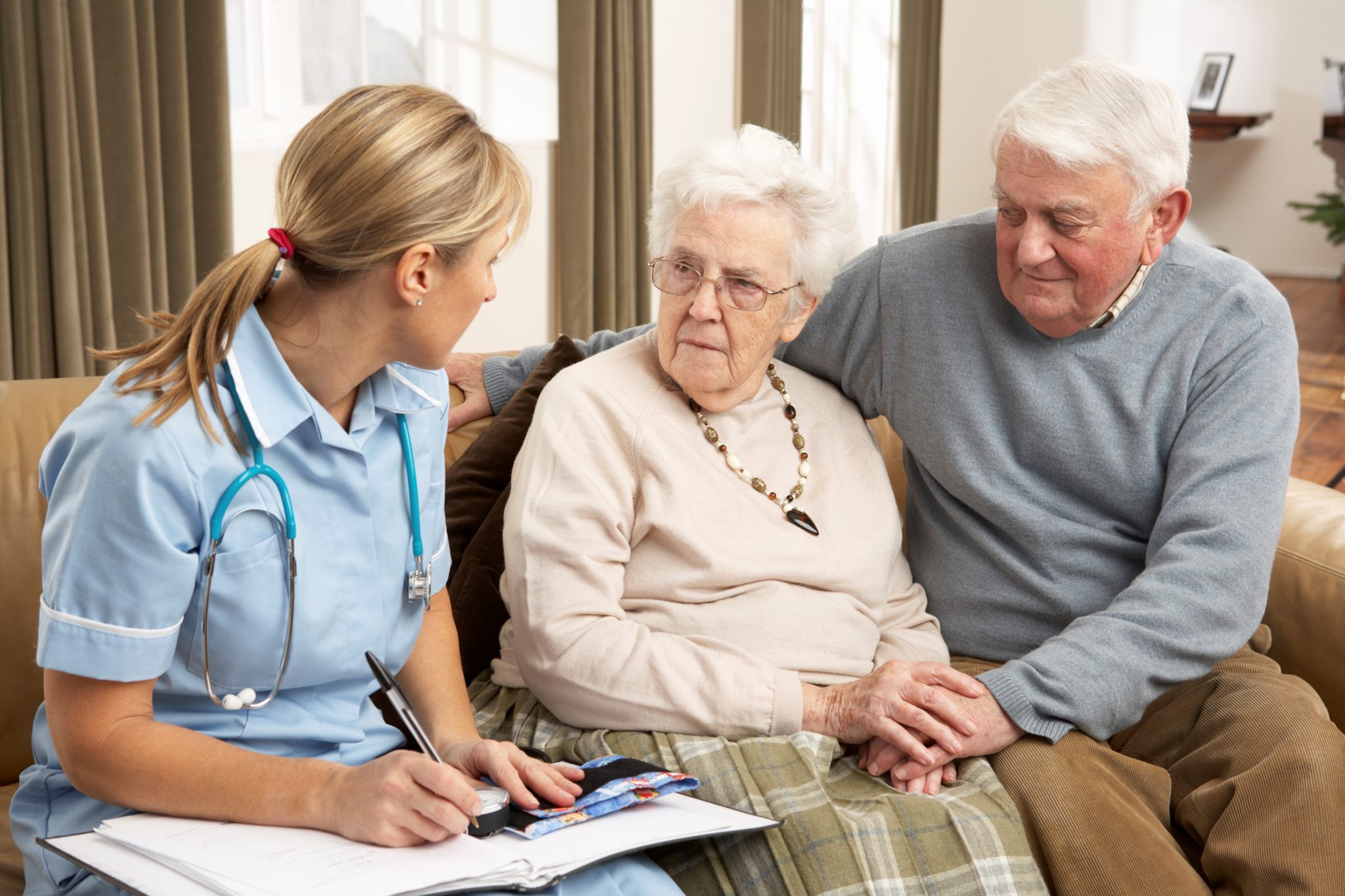Many people like to think that their life is going to remain the same forever. They imagine that they’ll live in the same house or apartment and keep up with their same routine until they die from natural causes at a very old age, preferably doing something they love like gardening or while out for a run.
While this is a nice idea, it’s not always a realistic one. Of course, it’s recommended that people do everything they can to remain healthy as they age. This means eating well, staying active, keeping up their social life to avoid isolation and prioritizing sleep, however, the reality is that regardless of how healthy someone’s lifestyle is, there’s a good chance they might still need some additional support as they age.
This doesn’t mean that older adults can’t still lead vibrant and stimulating lives, but simply that it’s normal for everyone to change and slow down as they grow older. While maintaining healthy habits are important and helpful, it’s inevitable that our bodies grow stiffer and a little less flexible, and that we all might have trouble recalling a name now and then or deal with a bit of confusion.
Some might face unexpected illnesses or injuries that might require a level of care they are not able to access at home. Older adults are at an increased risk of injury due to falls, according to the CDC, with close to 40,000 individuals over the age of 65 dying from falls in 2021, and many others resulting in emergency room visits and life-changing injuries. And cognitive decline and conditions such as dementia and Alzheimer’s disease can also result in a drastic change of circumstances.
But while some illnesses or injuries happen without warning, often the need for help can develop gradually. You might not notice that your loved one needs help until the situation has become serious, and then you suddenly need to jump into action right away.
Having to arrange care quickly can put a lot of stress on a family, so it’s always preferable to recognize the signs that your loved one needs help as early as possible, so that you can sit down to have a chat about next steps. Not only is it less stressful, but it can also help with the adjustment of making such a change, as major life transitions can often be disorienting and upsetting to older adults. So, let’s look at 5 signs you should look out for in your loved one that could signal the need for assisted living.
Changes in Mood

So, with that in mind, it’s important to pay attention to the mood of your loved one to see if you notice any dramatic changes in their mood and behavior, as this might signal a decline in their mental state, such as Alzheimer’s disease.
Mood swings don’t have just one reason behind them, and there might be a perfectly logical explanation behind them, so one of the first things you should do is get curious. Did something good or bad recently happen to your loved one? Has there been some kind of major change in their life? Finding an explanation doesn’t mean they don’t still need support, but it can help you determine exactly what kind of support they’re in need of.
Many older adults are faced with the struggle of losing their friends and companions as they age, which can be a very difficult reality to come to terms with, and might naturally result in some changes in mood.
For others, they might be dealing with cognitive diseases or they might have always been moody, but the fluctuations in their emotions have increased with all the changes that accompany age. Some older adults might also struggle with a lack of purpose and feel that they are being left behind by the rest of society.
Regardless of the reason behind it, mood changes in your loved one should never be ignored. Maybe they just need someone to talk to, but they also might require more extensive support and community, so it’s always worth a conversation if you notice that their mood is different than it used to be. Here are some behaviors to look out food:
- Lack of interest in activities they once enjoyed
- Excessive irritability, and lashing out
- Periods where they seem abnormally happy for no reason
- Cancelling on appointments or events and generally being antisocial
Issues with Cleanliness
Another common sign that an older adult needs help is that they are having trouble maintaining themselves and/or their living space. When this happens it might be accompanied by clear signs that your loved one is struggling with sadness or depression, or they might not even be aware that they are not able to clean and organize in the same way they used to.
When your loved one is struggling with cleanliness that might be in regards to personal hygiene, or their living space. Let’s look at personal hygiene first.
Someone who is having trouble with their personal hygiene might not shower frequently. You might notice they have a strong body odor. It is also very likely that they might not regularly launder their clothes, and you might notice stains on their outfits. Their breath might also be unpleasant and you might notice signs of tooth decay.
When someone is having trouble with their personal hygiene they might also have greasy and unkempt hair. They might have trouble cleaning up after using the washroom, which could lead to other odors and issues with proper cleaning of their bathrooms as well.
For someone struggling to maintain their home it is likely that you will find a lot of dirt and dust on the floors and surfaces, such as the kitchen counters. Toilets and showers might display a lot of grime and even mold. There also might be a lot of dishes and clutter, the latter of which can also present a major tripping and fire hazard.
It might not just be cleanliness as well. For many older adults, taking care of the needs of a home may grow to be too much of a burden for them to continue taking on. Cleaning out gutters or shoveling snow off the walkway may no longer be safe or even doable. Of course, don’t write off your loved one if you notice a little bit of a mess or that they are a little slow to clear their driveway. But, if you notice that they seem to be struggling with keeping up their hygiene and household tasks then at the very least you should have a conversation. Maybe they need to hire a housekeeper or a gardener, or maybe the time has come for them to get more well-rounded support at an assisted living residence.
Confusion and Memory Issues

- Frequently forgetting the names of people they know well.
- Constantly retelling the same stories, with no memory they that have already shared this same information.
- Confusion regarding their regular routine, where they are or who people are who should be familiar with them.
- Forgetting something they’ve done many times before, such as getting lost while out on a familiar walking route.
- Constantly misplacing and losing items
The National Institute on Aging offers some other guidelines on what to watch out for, as well as some of the differences between a more serious cognitive condition and the normal amount of forgetfulness that comes with age. But, it’s always better to be safe than sorry. If you suspect any memory or confusion issues with your loved one it’s always better to get it checked out than dismiss it, even if you’re sure it’s nothing. As with everything on this list, it’s always best to investigate, even if the issue seems minor. Best case scenario is that there’s no need for further action, and you’re shown your loved one that you care enough to speak up. But even if it’s discovered that your loved one needs further help at least you can rest easy knowing that you addressed it as early as possible, therefore getting them help as soon as you could. The earlier an issue is addressed the better chance that your loved one can have a higher quality of life for their remaining years. So never wait to speak up.
Family Support is No Longer Possible
Most of us would do anything for the people we love. Many adult children take on the role of caregivers to their parents, putting aside their own social lives and sometimes even careers in order to be able to do so. But sometimes the needs of your loved one might be more than you are able to provide for them. This could happen in a variety of ways:
Loss of Opportunities: Caring for your loved one would mean you need to take too big of a financial hit for you to be able to handle. Or perhaps the amount of care they need means that you would need to turn down career opportunities that could set you up for the rest of your life.
Neglect of Family: Your loved one might be taking up so much of your time that you are not able to give enough attention to your children or partner and it’s beginning to put a strain on those relationships.
Burnout: Caring for your loved one has put such a stress on your life that you are now experiencing burnout and it is affecting all areas of your life. The Cleveland Clinic offers more insight on burnout in caregivers here.
Safety: You might want to care for your loved one, but their condition has become too unstable for you to be able to safely provide for them. They might frequently wander off and get lost. They might not be able to navigate the house without assistance, and easily fall. They might leave the oven on or engage in other activities that are dangerous to you and others in the home. They also might be very agitated due to medication or a cognitive condition and be verbally and even physically abusive.
It’s never easy realizing that you are not able to provide the care your loved one needs, but if any of the above points speak to you then an assisted living residence will likely provide your loved one with the attention and support they need. And that way you can take care of your own needs so that you can show up for them in the best way you can offer.
Isolation
Finally, you’ll want to keep an eye out for any indication that your loved one is dealing with extreme loneliness and isolation. This could happen at any time, but can be especially common for older adults who have recently lost a spouse or dear friend, or have moved to a new city or neighborhood.
Older adults who are suffering from mental illness might also isolate themselves due to feelings of depression or grief. Someone who was previously very social might become withdrawn and quiet, and seem completely uninterested in visiting with friends or participating in activities they once enjoyed.
If your loved one doesn’t seem to go out anymore, and doesn’t seem to be connecting with friends and other loved ones, it might be a signal that they need further support and could benefit from being part of a larger community to keep them company.
Talking about assisted living with your loved one might bring up a lot of emotions. Some older adults are very resistant to the idea of change, and might view assisted living in a negative light. Because of this, it’s important to be patient and kind to your loved one when bringing up the topic. Be sure to listen to their fears and concerns, but then gently remind them of your concerns and all of the reasons why you think this might be a beneficial transition. And, of course, it’s always a good idea to consult with your family doctor to see if they have any further recommendations or concerns. At the end of the day assisted living is simply about providing your loved one with the best support and community for their needs.







